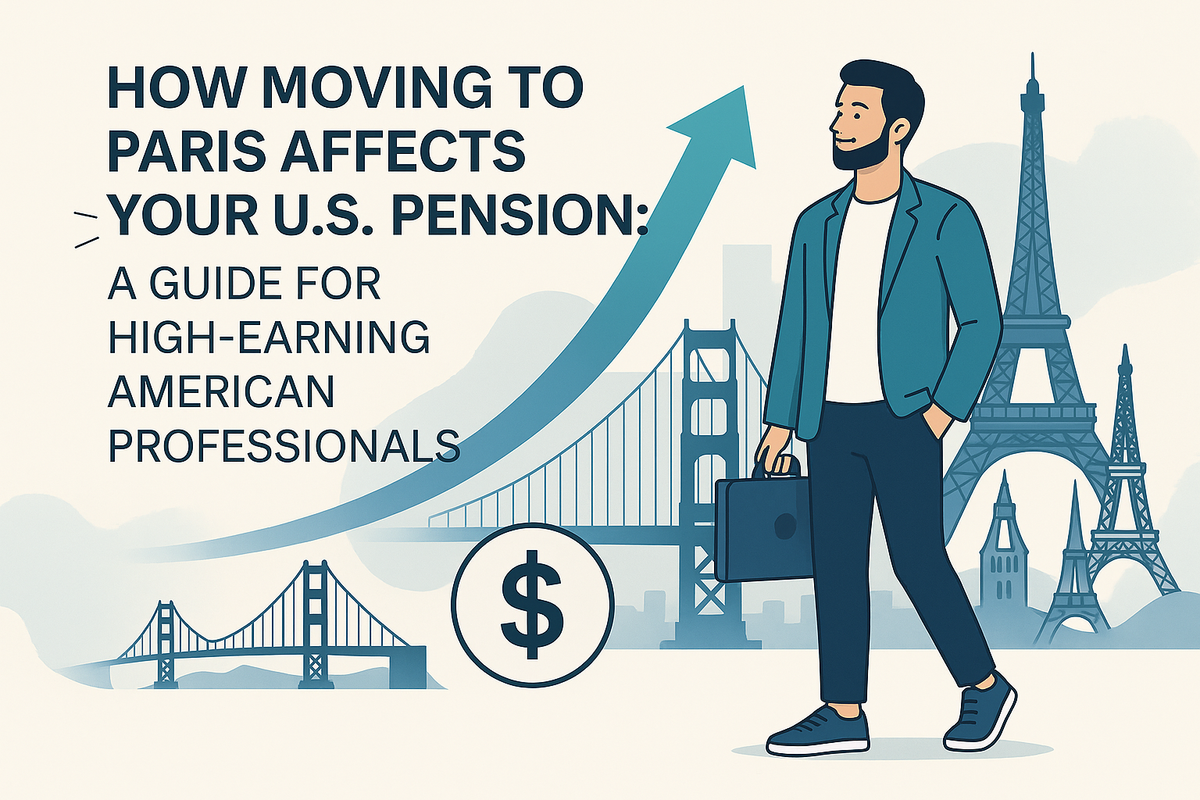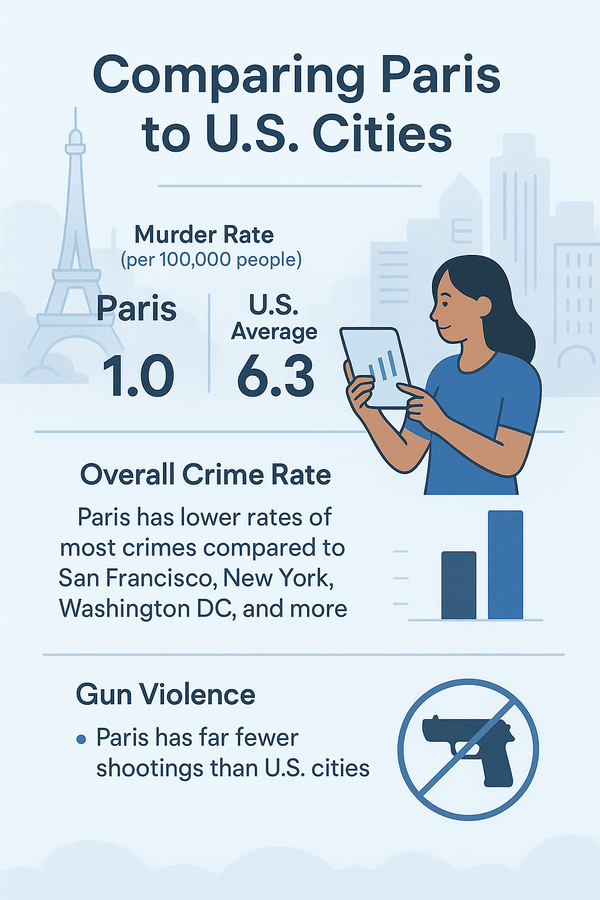How Moving to Paris Affects Your U.S. Pension: A Guide for High-Earning American Professionals

Thinking of relocating to Paris for work or lifestyle reasons? If you're a high-income American in tech or management, the move can be rewarding—but also financially complex, especially when it comes to your U.S. pension and retirement savings.
This guide explains how to legally move to France, work in Paris, and understand the tax implications and benefits of your U.S.-based retirement accounts while living abroad.
1. How to Move to France: Visas for U.S. Professionals
If you’re earning between $150K and $300K and want to move to France, these visa options are designed for professionals like you:
● Talent Passport (“Passeport Talent”)
- Designed for highly skilled workers, startup founders, executives, and employees with a French employment contract.
- Valid for up to 4 years, renewable.
- Allows family members to join you and streamlines permanent residency.
● Intra-Company Transfer Visa
- For employees transferring from a U.S. office to a French branch of the same company.
- Valid for stays up to 3 years.
- Maintains your status with your U.S. employer.
● Business/Independent Professional Visa
- Suitable if you work as a consultant or freelancer.
- Requires a detailed business plan and proof of sufficient income.
📝 All long-stay visas (over 90 days) must be validated upon arrival in France and may require a residence permit.
2. Working in Paris: Taxes, Social Charges, and Healthcare
U.S.–France Tax Treaty: No Double Taxation
The United States and France have a tax treaty that protects you from paying income tax twice on the same income. Here's how it works:
- U.S. income (like a 401(k) or Social Security): Taxed only in the U.S., but must be reported to French authorities.
- French income: Taxed in France, but you may receive a U.S. tax credit to offset the burden.
💡 France has progressive income tax rates ranging from 0% to 45%.
U.S.–France Social Security Totalization Agreement
The U.S. and France also have a Totalization Agreement, which ensures:
- You don’t pay into both U.S. and French social security systems at the same time.
- If your assignment in France is under 5 years, you may stay under U.S. Social Security.
- If you work longer in France, you might be required to contribute to French social security instead.
🔗 Details from the U.S. Social Security Administration
Healthcare in France
- Public healthcare: Accessible once you contribute to the French system or have been a resident for over 3 months.
- Private insurance: Common for high-earning expats to supplement public coverage and get faster access to care.
3. Your U.S. Pension: What Happens If You Live in France?
Will France Tax My U.S. Pension?
No. Under Article 18 of the U.S.–France tax treaty, pensions—including Social Security, 401(k), traditional IRAs, Roth IRAs, and 403(b) plans—are only taxed in the United States.
However, France requires you to declare your pension income so it can calculate your effective tax rate for your other income. But you won’t pay French income tax on the pension itself.
Will France Apply Social Charges?
Yes—France may apply mandatory social charges on foreign pension income, even if it's not taxed directly. These include:
- Generalized Social Contribution (CSG) – roughly 6.6% to 8.3%
- Social Debt Repayment Contribution (CRDS) – 0.5%
- Solidarity Contribution for Elderly Care (CASA) – 0.3%
🔎 Total: These charges can amount to about 9.1% of your pension income, but may be reduced or waived depending on your residency status and health coverage.
4. Living in Paris as a U.S. Professional
Cost of Living vs. U.S.
Paris is expensive compared to most U.S. cities—especially for housing. But it offers:
- Lower healthcare costs (up to 70%+ less than U.S.)
- Affordable public transportation
- Subsidized childcare and education options
Cultural Integration
To enjoy daily life and build relationships:
- Learn conversational French.
- Embrace local customs (e.g., always say “bonjour” when entering a shop).
- Be prepared for bureaucracy—but also high quality of life.
5. Key Takeaways
- Your U.S. pension remains taxed in the U.S. and is protected under the U.S.–France tax treaty.
- France may apply social charges, so plan ahead.
- Choose the right visa based on your employment, freelance work, or company transfer status.
- Understand your healthcare and residency obligations to access benefits and avoid surprises.
- Paris offers a high-quality lifestyle—but preparation is key, especially when your retirement savings are involved.
✅ Ready to Relocate?
Want personalized help planning your move to Paris, optimizing your taxes, or handling your pension?
📩 Contact us directly at franceexpatservices@gmail.com
We specialize in helping high-earning American professionals transition smoothly to life and work in France.
👉 Talk to a relocation advisor
👉 Get help understanding your U.S. pension in France
👉 Explore tech jobs in Paris




